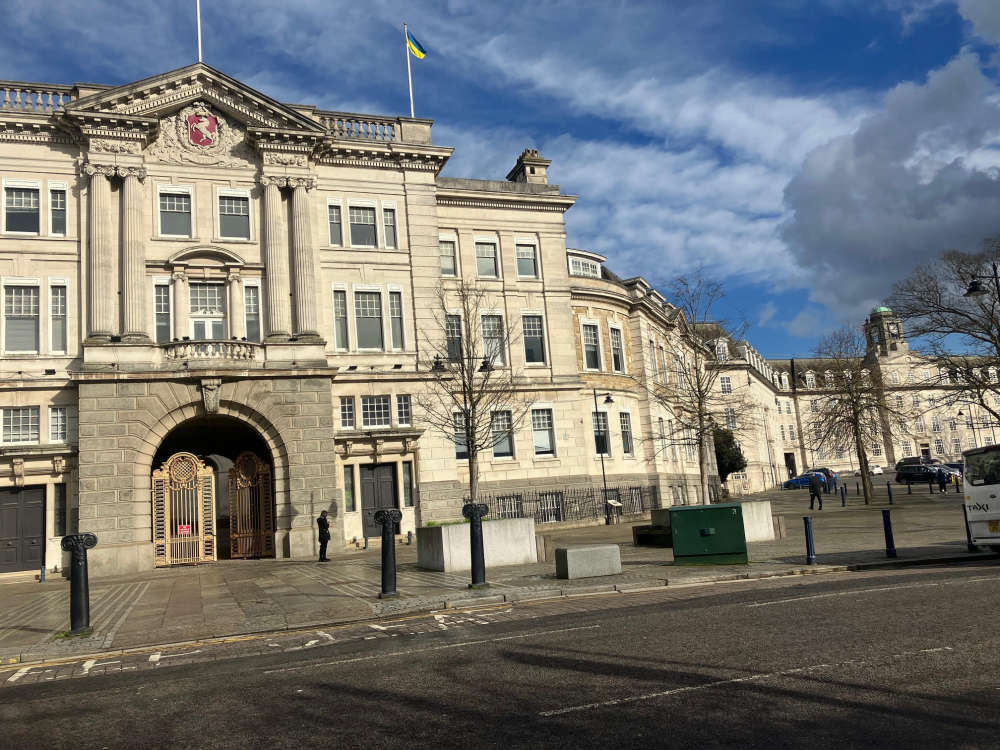
The new Reform-led Kent County Council has decided that there is no climate emergency.
Reform UK won 57 of the 81 seats on Kent County Council in May’s local elections. On Thursday their councillors pushed through a resolution which is "sceptical" that global warming is caused by human activity.
The motion also "rescinded" the declaration by the previous Conservative-run council that there is a "climate emergency."
Christopher Hespe of Reform UK proposed the motion and he told the council meeting in Maidstone: "Reform UK was overwhelmingly elected in Kent to bring back common sense, pragmatism and take a fresh look at KCC policies."
He continued: "Science is never settled and anyone who says it is is either misinformed, disingenuous or both."
Listen here to Reform UK's Christopher Hespe:
The Liberal Democrat Councillor representing Sevenoaks Town, Richard Streatfeild, (pictured below) responded that he thought the Reform UK's motion was harming the council's credibility.
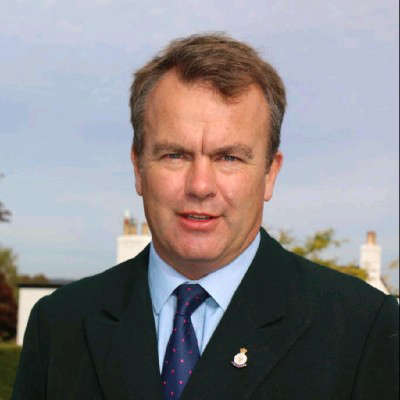
Richard Streatfeild said: "Allowing such poppycock, a litany of balderdash, gibberish, claptrap and hogwash into our record is not a victory for free speech. It is the triumph of belief over reason."
Listen to more from Richard Streatfeild here:
Meanwhile, Stuart Jeffery of the Green Party, who is also leader of Maidstone Borough Council said that 97% of scientists accept that man is causing damaging climate change and the only ones who didn't were generally "in the pay of fossil fuel companies, just like Reform are."
Listen to more of Stuart Jeffrey here:
There were demonstrators outside the meeting, who spoke to the BBC. Read more here:
https://www.bbc.co.uk/news/articles/c0jq4l8dpxlo
Here are some sources on the climate change issue:
The scientific consensus globally says there is a clear causal link between mankind's increasing use of fossil fuels and planetary warming. See the evidence from top climate scientists at NASA:
https://science.nasa.gov/climate-change/evidence/
NASA and numerous other scientific sources state that since 1850, carbon dioxide (CO2) concentrations in the atmosphere have risen by more than 40%. At the same time there has been the sharpest and fastest period of warming in Earth's history. The kind of temperature changes that would previously have happened over hundreds of thousands of years are now happening in decades.
Meanwhile, statistics from "our world in data" website on levels of carbon consumption emissions state that every person in China is responsible for around 7 tonnes of carbon emissions a year - which is about the same as the emissions of each person in the UK. In the US per capita "consumption emissions" are much bigger - at around 16 tonnes per person.
The UK's National Grid has posted about various "myths" on climate change:
https://www.nationalgrid.com/stories/journey-to-net-zero-stories/10-myths-about-climate-change-busted
These sources contradict the points laid out in the motion that is now Kent County Council policy.
Here is the motion passed by KCC full council this week:
Motion for Time Limited Debate:
Rescinding the KCC Climate Emergency Declaration
Proposer – Mr Chris Hespe
Seconder – Mr Paul Chamberlain
Background information provided by the Reform UK Group
Introduction
1. Kent County Council declared a ‘climate emergency’ in 2019. Since then, The Council has had no
discernible effect on the world’s climate. However, the impact of this designation has been that KCC has
endorsed the unproven view of anthropogenic (human-induced) climate change, pushed that narrative
through its policies and practices such as in procurement to the detriment of small, local suppliers; scared
numerous young people, and had the effect of disallowing proper and reasoned debate on alternative
viewpoints.
Settled Science?
2. It is often stated that anthropogenic climate change is ‘settled science’ and that the whole scientific
community believes it. However, this is far from the case. The World Climate Declaration of 2022, signed
initially by 1,900 of the world’s top scientists, stated that ‘there is no climate emergency’. Many Geologists,
Solar Physicists and Electro-Magnetic Engineers dispute the common narrative. Bodies such as The
Heartland Institute, The Science and Public Policy Institute, the Wall Street Journal and The Washington
Times push hard for the alternative perspectives to be heard, however the Western World is censoring
such debate, including Ofcom in the UK, with the implications on stifling debate by all the major media
outlets in the UK. Other organisations expressing scepticism of the anthropogenic climate change narrative
include Climatism, The CO2 Coalition, The Greening Earth Society, the Global Climate Coalition, the
Global Warming Policy Foundation, the Institute of Public Affairs and the International Policy Network. Until
recently, even Twitter/X censored alternative scientific viewpoints. The rise in that censorship has resulted
in a scientific community only receiving funding if it pursues research that supports the anthropogenic
climate change narrative. Also, bodies such as the EU’s Copernicus have been established with the set aim
to ‘prove’ and push the narrative.
3. However, there are numerous bodies and growing evidence that the anthropogenic climate change
narrative is overblown. These include works by Tony Heller, Patrick Moore (founder of Greenpeace), Nobel
Prize-winner Richard Lindzen and Martin Durkin (see ‘Climate: The Movie’). Clear evidence shows that
bodies pushing the anthropogenic climate change narrative have used inaccurate data; have extrapolated
trends irregularly and have even allowed misinterpretation of data. These bodies include NASA, NOA and
individuals pushing the climate narrative such as Al Gore, Michael Mann and John Kerry. However, the
censorship industry in the West disallows proper debate on their false claims. Globally, The USA, China
and India, which are deemed to be major contributors to climate change, are all sceptical of the science
supporting climate alarmism. KCC would wish to allow sensible debate on the topic of climate change.
A Changing Climate
4. The world’s climate has always changed. Much is cyclical eg Milankovitch Cycles. Even though
throughout modern history there have been numerous climate scares (eg in the 1970s it was believed by
the scientific community that the world was heading into a new Ice Age), the current ideology is that the
world is heating, and global bodies such as the World Health Authority have even stated the term ‘global
boiling’ The baseline for such statements of comparison is 1850, or the commencement of the industrial
revolution; and with it humankinds’ associated increase in emissions that cause a greenhouse effect.
However, the world is exiting a mini ice age and therefore some warming should be expected.
5. In the UK, we are constantly hearing about new weather records being broken. However, the World
Meteorological Association has deemed 80% of the UKs measuring devices to be unfit for purpose. More
than 50% of temperature readings are taken adjacent to airport runways (which hold heat) and many more
are in city ‘heat islands’. The introduction of new measuring devices and the positioning of these vis a vis
the ground has been shown to skew readings by up to 0.6 degrees Celsius.6. Taking a longer-term historical perspective, the world is still very cool, being within the lower quartile of
temperatures over the past 400 million years or so.
The world has been warmer than currently in a number of eras in recent history, including Minoan, Roman
and Medieval times. It is widely believed that in Roman times, the world was two degrees Celsius warmer
than now. A warming world should not be seen as a bad thing. There are ten times more deaths from cold
than warmth, and throughout history it has been shown clearly that periods of warmth are more productive
and developmental for humans.
Carbon Dioxide
7. The anthropogenic climate change theory states that Carbon Dioxide is a greenhouse gas and therefore
acts to trap heat. There is some long-standing evidence that this is the case, however CO2 has a saturation
point, so that every additional molecule of the gas in the atmosphere has a reduced effect. CO2 is a trace
gas, essential for life on earth. The amount of CO2 in the atmosphere is 0.04% (ie one twenty-fifth of one
per cent); and mankind only produces 3% of the world’s CO2. It has to be asked why climate catastrophists
are only concerned with the 3% and not the 97% that is naturally occurring.
The UK produces 0.77% of the world’s CO2 emissions (ie less than one per cent), so even if harm from
CO2 was accepted, Kent’s contribution to global climate would be so small as to be unmeasureable.
8. CO2 levels in the Earth’s atmosphere have risen from the dangerously low level of 230 parts per million
in the 1850s to the current 420 parts per million. Over that time period, this is a minute change, which can
be pictorially compared to it being the equivalent of adding one person to a full Royal Albert Hall.
Historically, current CO2 levels are very low indeed. Levels have been 13 times higher in the world’s past.
In the 1850’s with the level of CO2 in the atmosphere being 230 parts per million, this was dangerously low
for the planet, as it is widely accepted that at 150 parts per million, life on Earth would cease. CO2 is
beneficial to life in creating a greener world. In the past 50 years, it has resulted in the greening of more
that 15% of the Earth’s surface which was previously desert or scrubland, and it results in increased crop
yields, thus helping to feed the world.
9. The largest greenhouse gas though is not CO2, but rather water vapour, making up more than 90% of
the world’s atmosphere, Yet, there is no clamour for this greenhouse gas to be controlled).
Untruths and Misconceptions
10. There are a number of factors other than cyclical trends that would appear to be drivers of any
changing climate. They include the shifting magnetic pole, solar activity (the number of sun spots) and the
extent of volcanic activity. However, humankind has no influence over any of these. Perhaps the most
significant likely driver of climate change is solar activity. The sun is 30,000 times the size of the Earth, but
few references are made in studies to the effect of low solar activity on shifts of the Jetstream to meridional
pattern and away from zonal pattern. The impact of this shift is to see heat plumes from the South pulled
Northwards (as happened in the heatwave of 2022) and cold air from the Arctic dragged Southwards, as in
the freezing weather in central Europe of the same year. The role of volcanoes in affecting weather
patterns is commonly ignored, particularly the sea heating caused by underwater volcanic eruptions and
the ‘greenhouse’ emissions/water vapour expelled over land.
11. There have been numerous untruths and misconceptions spread by ‘climate alarmists’ in recent years.
These include the decline in Polar Bear numbers and the mass bleaching of coral reefs (both of which are
not supported evidentially); the slicing away of major glaciers due to global warming (‘calving’ is an annual
and natural occurrence); a rising sea-level (the sea level worldwide continues to rise at 3-4 mm per year, as
it has done for the past 200 years, even though CO2 emissions have increased), and the Antarctic Ice Cap
melting (the reality is that the Ice extent has increased by 22% since 2016 and is greater than in 1966 –
Heller A et al 2024). Over the past 120 years, there has been a 90% fall in the number of deaths caused by
extreme weather conditions, demonstrating human civilisation’s ability to adapt to changing circumstances.
12. The Inter-governmental Panel on Climate Change (IPCC) is an international body which produces and
compiles scientific research on climate change. It produces two documents at regular intervals: one
scientific compendium, and a shorter ‘political’ document. The scientific compendium is rarely radical, even
stating that there has been no discernible increase in the number or severity of extreme weather events
including droughts, floods, hurricanes, tornadoes, wildfires and heat and cold extremes. However, the
politically-produced shorter document meant for wider dissemination tends to doctor and catastrophise themessages for the general public. There have been numerous scientists who have left or refused to work for
the IPCC as they do not agree with the political messaging that it is attempting to push.
13. Noting the above, there are simply too many anomalies evident in the climate catastrophism ideology
for KCC, as a serious body, to continue with its declaration of ‘climate emergency’.
Freedoms and Liberties
14. There is a growing perception of what a society with Net Zero CO2 emissions would have to look like,
and it is increasingly feared that the ‘climate emergency’ is being pushed as a means to increase state
control over people’s lives. Whether by introducing 15-minute cities to reduce transport movements;
planned reductions in car ownership in city areas; forced reduced consumption of red meat (with the
consequences this has for farming, land use and ultimately food security), reduced consumption of goods,
and possibly the introduction of ‘carbon budgets’ giving individuals limited allowances for flights and
clothing purchase. These agendas, pushed hard by governments, have been deemed by those concerned
with individual liberty and freedom as ‘anti-human’, are being pushed hard by bodies such as the C40
Group of worldwide cities, the World Health Authority, the United Nations (through its Agenda 30 with its 17
sustainability goals) and the government’s Climate Change Committee. It is worth noting that none of these
organisations has been elected into power.
15. In addition to impacting on our freedoms, accepting this ‘climate catastrophism’ has financial
consequences as well. In the UK, the Labour government has agreed to fund £9.4 billion to unproven
science carbon capture, usage and storage plants in the North-West, North-East and in Wales; has agreed
to £11.6 billion of International Climate Finance, and provides huge subsidies to push renewable (but
unreliable) wind and solar energy, costing everyone in the UK significant amounts of money. The Labour
government spent a record £3.5 billion on climate finance in 2024/25. The cost of achieving Net Zero has
been estimated to be £800 billion for the UK.
Motion:
This Council resolves to:
(a) be open-minded but sceptical of anthropogenic climate change.
(b) welcome open and inclusive debate on the topic.
(c) always consider ways to enhance the County’s energy security and welcome a mixed
economy of provision.
(d) consider any energy scheme proposal with an analysis of its business case; which should
consider economic, social and environmental impacts and consequences.
(e) rescind the prior declaration of a Climate Emergency
Sources:
Paras 1 – 3
www.Clintel.org (2022) – World Climate Declaration
Booker C. (2011) – The BBC and Climate Change: A Triple Betrayal
Moore P. (2024) – Fake Invisible Catastrophes and Threats of Doom
Durkin M. (2023) – Climate: The Movie (The Cold Truth)
Paras 4 – 6
The Washington Post (1970) – Colder Winters Herald Dawn of New Ice Age
Lindzen R. S. (1992) – Global Warming: The Origin and Nature of the Alleged Scientific
Consensus
Berkhout A .J. (2025) – Let the Data Speak: Climate Imaging and Geophysical Knowledge
US Environmental Protection Agency (2009) – Urban Climate: Climate Study and Urban Heat
IslandsAlexander R. (2024) – Weather Extremes in Historical Context. Report for Global Warming Policy
Foundation
Paras 7 – 12
Readham G (2019) – CO2 is Plant Food. Published by The Guardian
De Large W. P. and Carter B. M. (2014) – Sea Level Change
Dr Grockford S. (2023) – State of the Polar Bear Report, for the Global Warming Policy
Foundation
Marcel C (2021) – The Frozen View of the IPCC – An Analysis of AR6
Global Warming Policy Foundation (2021) – The State of the Climate
Ralph A. (2022) – Extreme Weather: The IPCCs Changing Tune
Gok Lang I.M. (2005) – Carbon Dioxide: The Good News
Paras 13 – 14
C40 Cities (2025) – Climate Leadership Group Report
Montford A. (2019) – Green Killing Machines: The Impact of Renewable Energy on Wildlife and
Nature
Prof Hughes G. (2017) – The Bottomless Pit: The Economics of Carbon Capture and Storage

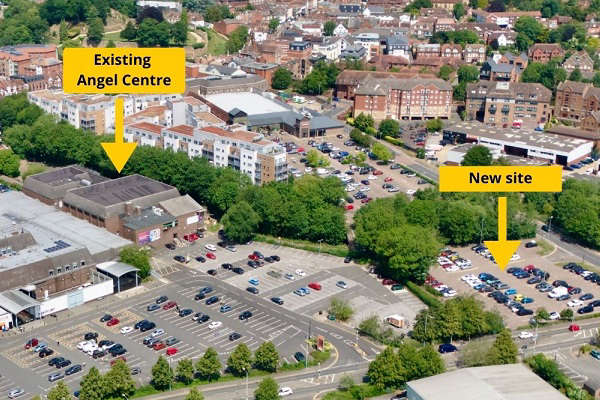 Design Plans for new Angel Centre in Tonbridge
Design Plans for new Angel Centre in Tonbridge
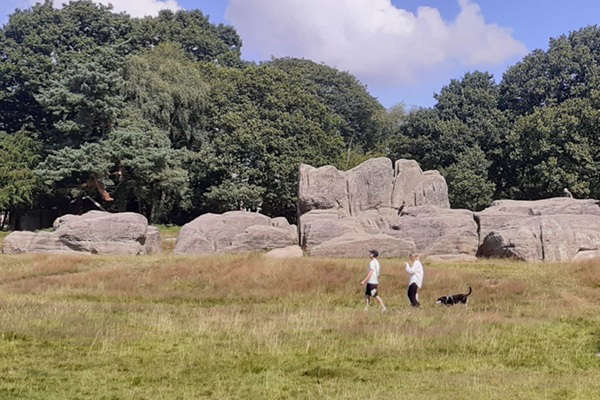 Tunbridge Wells & Rusthall Common - For Sale
Tunbridge Wells & Rusthall Common - For Sale
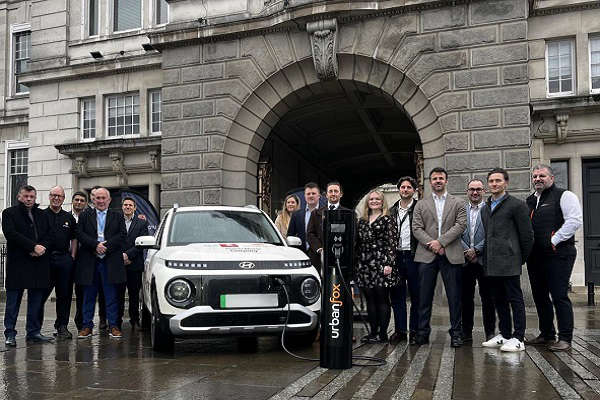 10,000 Electric Vehicle Chargers Coming To Kent
10,000 Electric Vehicle Chargers Coming To Kent
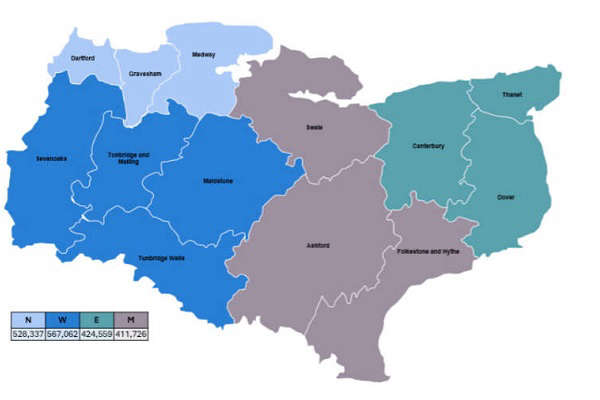 Consultation on Future Council Areas
Consultation on Future Council Areas
 Hosepipe Restrictions Lifted
Hosepipe Restrictions Lifted
 Blighs Meadow is Under New Management
Blighs Meadow is Under New Management
 HGV Scheme Launched In Goudhurst
HGV Scheme Launched In Goudhurst
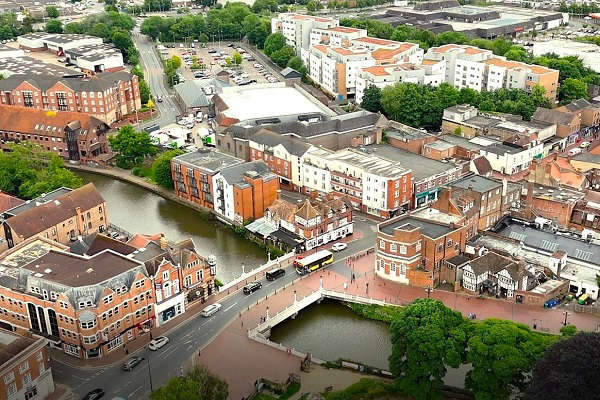 Should Tonbridge Have A Town Council
Should Tonbridge Have A Town Council





Comments
Add a comment